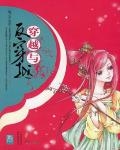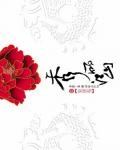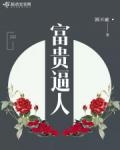Volume 2: The King's Way Chapter 175: The Birth of Salt
After morning exercise, Bai Tu was having dinner with Lu Bu, Lu Lingqi and Taishi Ci.
At first Taishi Ci refused. His duty was to protect Bai Tu. As for Lu Lingqi... although theoretically she was also a guard under his command, Taishi Ci felt that as a leader, there was no need for him to interfere.
As for Lu Bu, it goes without saying. Given their relationship, after coming to Bai Tu for "training" every day, isn't it normal for them to eat together?
But Bai Tu was really awkward. When he was eating, there was someone standing behind him, so usually if Taishi Ci caught up, Bai Tu would pull him to eat together...
Unless it was a formal banquet, Bai Tu would endure such corrupt behavior as having someone serve him by his side.
Many people cannot understand Bai Tu's "awkwardness" - is this awkward? For a real aristocratic family, not to mention serving during meals, even "farting" requires a special servant, whose role is to take the blame when the master farts!
"The fish that Xingba brought back tastes good." Lu Lingqi said.
"Once the matter of Yuan Shu is settled, we can go back and try something new." Bai Tu said helplessly.
This breakfast is quite luxurious!
It was millet porridge, pickled vegetables, and fifty kilograms of wild yellow croaker... pickled salted fish.
If it was a wild yellow croaker weighing more than 20 kilograms in modern times, it would probably be sold for millions, right?
But there is no way. From Wuxian to Hefei, even if you "ride the red dust and laugh at Bai Gong", it is unlikely that you can eat fresh "goldfish". After all, the road conditions are here, so you can only pickle it into salted fish.
"Actually, I still prefer the bacon from last night," said Lu Lingqi.
"Jiangdong and Huainan are not as cold as Bingzhou. Don't eat so much fatty food, otherwise the unnecessary fat will reduce your speed and reaction." Lu Bu reminded.
Lu Lingqi rolled her eyes. Compared to Bai Tu... Lu Bu had higher requirements for Lu Lingqi.
Well, after all, Lv Lingqi is now Baitu's "guard", so if there is an enemy, she will be the first to attack...
"Hehe, whether it's bacon or ham, they will be promoted in the future." Bai Tu said.
As a large pig farmer, Bai Tu naturally knew that the supply of pork was increasing significantly.
Whether it is bacon or ham, regardless of the taste, the amount of salt consumed will be a satisfactory number!
The price of salt in ancient times actually had nothing to do with cost, especially after the emergence of the salt-drying method... its essence was a kind of "tax."
Whether it was farmers in the countryside or young ladies in the boudoir, everyone had to eat salt, which was a disguised poll tax.
At the same time, foods containing a lot of salt, such as salted fish and pickled meat, are actually subject to additional taxes invisibly!
So unlike the cooking method of yellow croaker, Bai Tu decided to spare no effort to promote the production methods of foods such as bacon, pickled meat, and ham.
When salt production is mainly controlled by Baitu, the people of the world prefer a heavier taste, the better!
This is all tax...
Bai Tu even wanted to spread the word: You are not eating bacon, you are supporting the Han Dynasty!
According to the World Health Organization, the optimal salt intake for humans is 5g per day.
To modern people, especially those living in areas with strong tastes, this amount is considered very "light".
Moreover, in Bai Tu's opinion, at least in agricultural civilization, pursuing the optimal value is complete nonsense - the demand for "salt" of manual laborers who work in the open air under the sun is definitely not the same as that of modern white-collar workers.
At least in the history of Chinese civilization, until modern society, "salt" has always been in short supply.
Bai Tu had seen in a certain paper about the salt intake of the Han Dynasty people. After various fancy calculations, the data obtained was that during the Spring and Autumn Period... the Qi State, a major salt-producing country, had an average salt consumption of nearly 5g per capita, which exceeded the limit by three to four times during the Ming and Qing Dynasties.
However, Bai Tu can now responsibly say that there are serious problems with the calculation method of that paper...
The first and most important point is that the data used as the theoretical basis comes from "salt consumption".
You have to know that in ancient times when there were no refrigerators, a large part of the salt was used to store, or pickle, food!
However, pickling is very wasteful, and there is a big deviation between the amount of salt consumed and the amount of salt intake...
At this time, the consumption of "salt" by the people of Jiangdong was roughly the same. Judging from the sales channels of 17 salt merchants, of the one million stones of sea salt boiled each year, about 300,000 stones were consumed in Jiangdong.
Generally speaking, it is similar to the Qi State in the Spring and Autumn Period. After all, there was no qualitative leap in salt-making technology from the Spring and Autumn Period to the Han Dynasty.
Moreover, the State of Qi was also a major salt producer during the Spring and Autumn Period.
Of course, considering that there must be people who privately boil salt, the per capita salt consumption in Jiangdong is actually higher than that in Qi, but not too much.
In other words, even in Jiangdong, a salt-producing area, the salt intake of ordinary people is slightly lower than the "light" health standard of modern people!
Lu Bu just reminded Lu Lingqi not to eat too much fat, but did not tell her not to eat too salty food, which also indirectly proves this point.
From this perspective, the people at this time still have great potential to support the Han Dynasty...
Of course, there is also a prerequisite, that is, they have to get rich first, otherwise they don’t mind eating lighter!
After breakfast, Bai Tu received an "email" from Lu Su in Jinling at Ji's place in Hefei, which contained the pricing of salt permits in various places.
In fact, Bai Tu and Lu Su had discussed this issue for a long time before, and now it is just the final confirmation. After all, the Ministry of Civil Affairs’ Salt Permit will be officially released soon.
Each "yin" can be exchanged for 500 dan of salt at the salt field, but salt yin is not sold at the salt field.
Although many articles describe ancient salt as being comparable to gold and hundreds of times more expensive than rice, in reality, in most "normal" times, the price of salt was far from being that high.
Moreover, the price of salt is actually much more stable than the price of grain. The price of grain can easily differ by dozens of times in years of disaster and good harvest, while there are only two possibilities for the artificially high price of salt - either the court is short of money, or the salt merchants are out of control...
The price of salt in the Han Dynasty was generally around 1,000 coins per stone, which was four times the price of grain in a normal year.
However, in today's turbulent times, the price of grain in Jiangdong has still doubled due to the pressure of relief grain - this is already very reasonable.
At this time, the price of salt was about two and a half times that of rice.
Although the Han Dynasty is very short of money now, the wealthy families who make salt also want to lose control and have fun, but... the latter have no basis for monopolizing the salt industry now, and the former can't collect a single penny. They can only wait for people with lofty ideals like Bai Tu to "support the Han Dynasty". Naturally, the price of salt will only rise slightly and will not soar.
According to the history of "another world", the price of salt was basically stable during the heyday of the Tang Dynasty. It was only because there was too much grain that the price difference was dozens of times. After the An-Shi Rebellion, the Tang Dynasty was so short of money that it increased the purchase of salt and iron, causing the price of salt to soar. During the Song Dynasty, for most of the time, the price of salt would not exceed ten times the price of grain, but it would probably rise during every rebellion.
Now the Ministry of Civil Affairs has set the base price of salt permits at 500 shi of grain, which means the ratio of salt to grain is about 1:1...
Salt permits at the basic price can be applied for in Wujun, and can be paid with grain, money, or silk.
However, at this price, the retail price would be at most twice the cost, and there are also issues such as transportation to consider, so the profit is not high.
The more profitable salt permits were issued in Hefei, Guangling and other places. They only required 200 dan of grain, and the payment had to be made with grain - in other words, everyone was encouraged to transport grain to Huainan.
Animals have their own paths, and rats have their own paths. If we really want to transport grain from Jiangdong, half of the consumption is the minimum. Especially now that Huainan is experiencing a drought, the transportation consumption has increased sharply. In this case... it is better to give full play to the subjective initiative of each family and see if there is any potential to be tapped.
Moreover, they did not need Bai Tu's guidance, they consciously began to acquire the owned land in Huainan - as for the unowned land? Sorry, the unowned land will be used to "support the Han Dynasty" and is now managed by the General's Mansion.
Even the General's Office was personally involved in purchasing land in Huainan, but Bai Tu only cared about open areas suitable for military settlements and collective farming, and he didn't even bother to look at the corners.
In addition, in places adjacent to Jingzhou, such as Chaisang, if you can prove that the grain was transported from Jingzhou, you can also enjoy a half-price discount of 250 dan...
The effect was very significant. It turned out that these aristocratic families still had potential to be tapped. Previously, because the grain price in Jiangdong had not skyrocketed due to the suppression of relief grain, it did not form a siphon effect on the surrounding areas.
Once the salt permit was issued, shiploads of grain flowed from Jiangxia to Jiangdong...
When Bai Tu wanted to make an official transaction before, Liu Biao directly refused. However, now it was all "civilian behavior" broken down into small pieces, and he was powerless to intervene. After all, his control over the powerful families under his jurisdiction was far less than that of Bai Tu.
Because the grain can be transported down the Yangtze River, the cost of transporting grain to Jingzhou is low, and Jingzhou is not greatly affected by the drought. In addition, many wealthy families have their own connections in private, and they have raised the price of grain in Jingzhou by three points.
Rumor has it that after Liu Biao learned the news, he cursed his mother.
The salt from Baitu not only collects salt tax, but also drives a series of changes!
It even exposed some ruthless people, for example... Zhang family of Guangling cooperated with Zheng family of Wujun. Zhang family took out 50% of their originally abundant grain reserves and sent them to Guangling city. Later, a large branch went directly to receive the relief grain and then moved to Jiangdong.
Of course, there were some deeper transactions between the two sides. For example, before moving away, the Zhang family traded their land to their relatives who stayed in Guangling, so they were able to take out so much grain, and traded their land in Shanyin, Kuaiji from the Zheng family.
And Zheng also became the largest salt agent in a short period of time...
Chen Gong naturally welcomed this bold move. He appointed Zhang Hong, the representative of the Zhang family who moved to Jiangdong, as the chief clerk of Guangling, that is, his assistant in Guangling, and promised to bring him back to Jinling and introduce him to the central government. The reason for moving to the Jiangdong branch was not only for money, but also a bet on Bai Tu.
Bai Tu had seen even more outrageous operations. When he was in Hefei, he saw someone transporting grain from Shouchun to exchange for salt permits. He couldn't help but feel worried about Yuan Shu, and silently gave the visitor another 50% discount...






